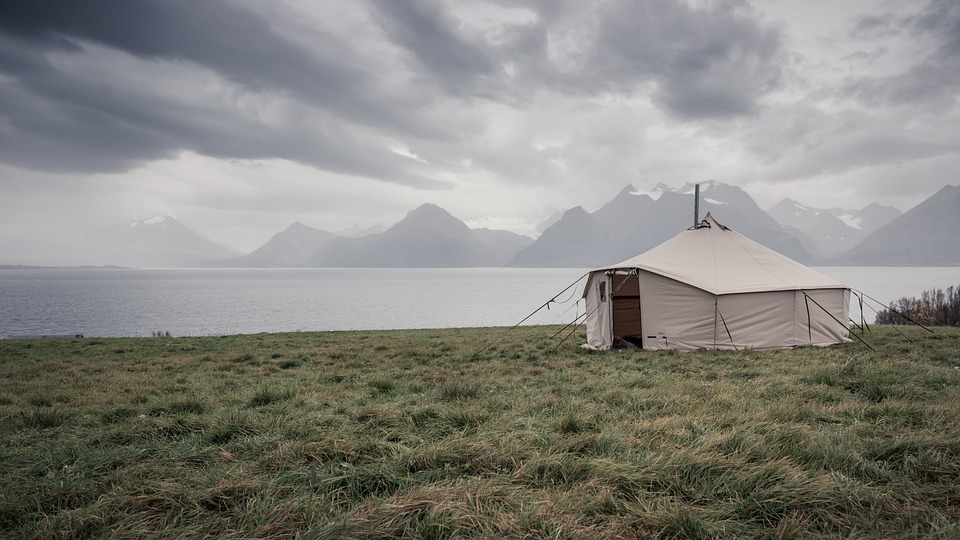Introduction
When winter arrives, many camping enthusiasts pack away their gear and wait for warmer weather. However, with the right preparation and knowledge, cold weather camping can be an exhilarating experience. Conquering the elements and enjoying the beauty of nature during the chilly winter months can provide a unique and unforgettable adventure. This ultimate guide will equip you with the essential tips and tricks for a successful cold weather camping trip.
Choosing Proper Winter Camping Gear
Before embarking on a cold weather camping trip, ensuring you have the right gear is crucial. Opt for a four-season tent that is built to withstand harsh weather conditions. Insulated sleeping bags, thermal clothing, and proper layering techniques will help keep you warm and comfortable throughout the night. Additionally, invest in a good pair of winter boots, warm socks, gloves/mittens, and a hat to protect your extremities from the cold.
Preparation and Planning
Planning ahead is essential for cold weather camping. Research the area you intend to camp in to understand the terrain, weather patterns, and potential risks. Create a detailed checklist to ensure you pack all the necessary items, including extra food and water supplies. Inform someone about your camping plans, including your intended location and estimated return time, for safety reasons. Adequate preparation will help you tackle unexpected challenges efficiently.
Setting Up Camp
When setting up camp in cold weather, choose a site that offers natural protection from wind and hazards such as falling branches. Clear the area of snow or ice before pitching your tent, as the cold ground can sap away body heat. Take advantage of natural features, such as trees or rocks, to provide additional shelter. Ensure your tent is secured properly and use a groundsheet or an insulating layer under your sleeping pad to prevent heat loss from the ground.
Safety Measures
When camping in cold weather, prioritizing safety is crucial. Monitor weather conditions constantly and be prepared for sudden changes. Always carry a fully charged communication device for emergencies and familiarize yourself with basic first aid techniques for cold-related injuries. Stay hydrated, even though you may not feel as thirsty in the cold, and consume high-calorie, easily digestible food to fuel your body’s internal heating.
Staying Warm
To stay warm during cold weather camping, proper layering is key. Start by wearing a moisture-wicking base layer to keep sweat away from your body. Add insulating layers such as fleece or down, followed by a windproof and waterproof outer shell. Adjust the layers according to the activity level and weather conditions to regulate body temperature. Use hand warmers and hot water bottles to provide additional warmth while sleeping. Remember to keep clothing dry as moisture can rapidly decrease body heat.
Creating a Comfortable Campsite
Enhance your cold weather camping experience by creating a comfortable campsite. Invest in lightweight camping chairs and portable tables to create a cozy sitting area. Keep yourself entertained with books, board games, or portable music devices. Set up a camping stove to prepare warm meals and hot drinks. Make sure to properly dispose of waste and leave no trace to preserve the beauty of the wilderness.
FAQs
Q: What is the best type of insulation for a sleeping bag?
A: Synthetic insulation is generally the best choice for cold weather camping. It retains its insulating properties even when damp and dries quickly in case of any moisture build-up.
Q: Can I use a regular tent for winter camping?
A: While regular tents can be used, they may not provide adequate protection against the cold and wind. It is highly recommended to invest in a four-season tent designed specifically for harsh weather conditions.
Q: How do I prevent my water from freezing?
A: To prevent water from freezing, use insulated water bottles and store them upside down, as the ice forms from the top. You can also keep the bottles in an insulated bag or store them in a sleeping bag to provide some insulation against freezing temperatures.
Q: Can I build a campfire in cold weather?
A: Building a campfire in cold weather is possible, but it can be more challenging due to wet or snowy conditions. Ensure you have proper fire-starting tools, dry tinder, and firewood that is suitable for cold weather conditions.




